Water "Recipes" Have Taken Over An Entire Corner Of The Internet, And It's Quietly Become One Of The Most Divisive Food Trends I Can Remember
As someone who spends far too much time scrolling through TikTok, I can assure you that a new "FoodTok" trend gains viral popularity every 1–2 months...and consequently divides the app into two equally passionate (but incredibly argumentative) camps.
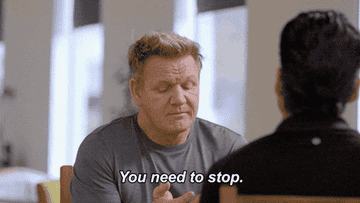
Fox / Via giphy.com
It's rare, however, for these TikTok-specific trends to become hotly debated topics off-platform — which is exactly what's happening with #WaterTok. I'll be honest: At first glance, it doesn't really feel all that contentious. But oddly enough, there's kind of a lot to unpack here.
Here's what the trend is all about. Basically, people are creating and sharing water "recipes" on TikTok, modifying plain ol' water with things like sugar-free syrups and flavor packets. The recipes usually have fun names, like Orange Mermaid Water or Unicorn Cotton Candy Water. Recently, the trend even seems to be at least partially responsible for nearly selling out the popular Stanley tumblers that many creators use to drink their concoctions.
@takingmylifebackat42 MT. DEW WATER💚 #water #WATERTOK #h2o #drinkwater #flavoredwater #healthyliving #healthyrecipes #weightloss #weightlosscheck #fit #fitness #goals #motivation #hydration
♬ original sound - 🖤Tonya
Pepper in the fact that the #WaterTok hashtag has garnered over 220 million views, and It's evident that these water recipes are catching on in a major way. That's mostly thanks to Tonya Spanglo, who might be better known to her 800,000-plus followers by her handle @takingmylifebackat42.
All signs point to Tonya's videos featuring her "waters of the day" being the origin of the trend. In a recent interview with Fast Company, she shared that she started making flavored water years ago. Initially, her concoctions simply helped her to meet her daily water goals after bariatric surgery, more commonly known as weight-loss surgery. But after she shared her recipes with the internet, they became a massive part of her brand on the app, and other TikTokers similarly found themselves creating viral water recipes inspired by her.
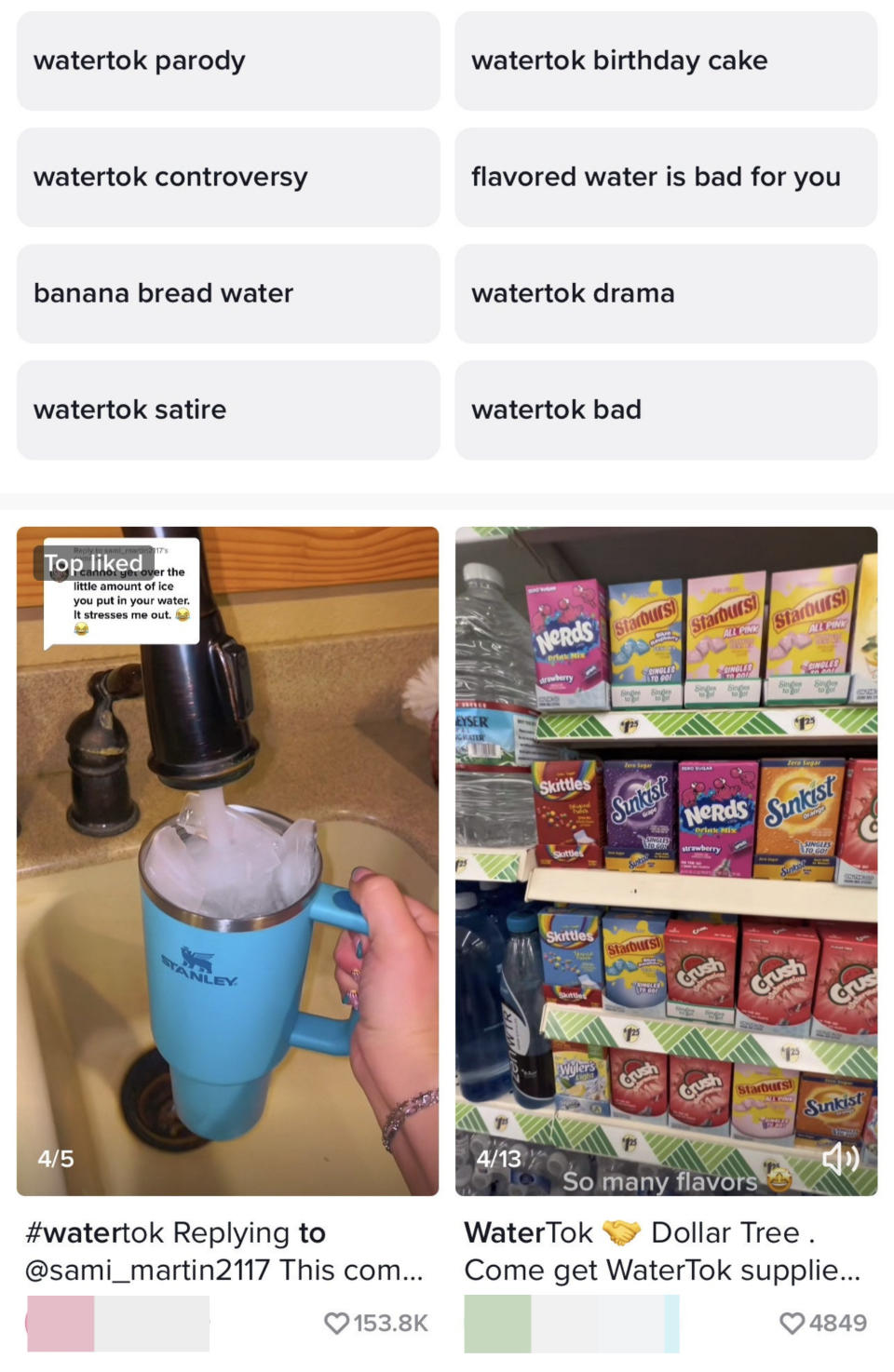
The recent mega-viral surge in WaterTok recipes brings us to the first piece of controversy surrounding the trend: Many TikTokers who are "stuck" on WaterTok due to the platform's algorithm aren't too happy about it, and they've voiced their opinions through shocked reaction videos, nuanced explainers, parody videos poking fun at the trend, and everything in between.
@grandpasyummytoes POV: You’re on WaterTok #watertok #water #drinktok #drinkwater #watertokdrama #h2o
♬ original sound - grandpa yummytoes
Of course, negativity and TikTok go together like bread and butter, but I've noticed that WaterTok's opposers mainly leave negative comments for one of several reasons, and they range from pretty benign troll behavior to sentiments of genuine concern. There's the crowd that's purely angry about being "stuck" on videos of the trend (who often leave holier-than-thou comments about flavored waters being an inferior choice), those who claim that these "water" recipes end up being more like soda or juice in the end, and then there are those who have real reservations about the potential health impact of ingesting these beverages on a daily basis.
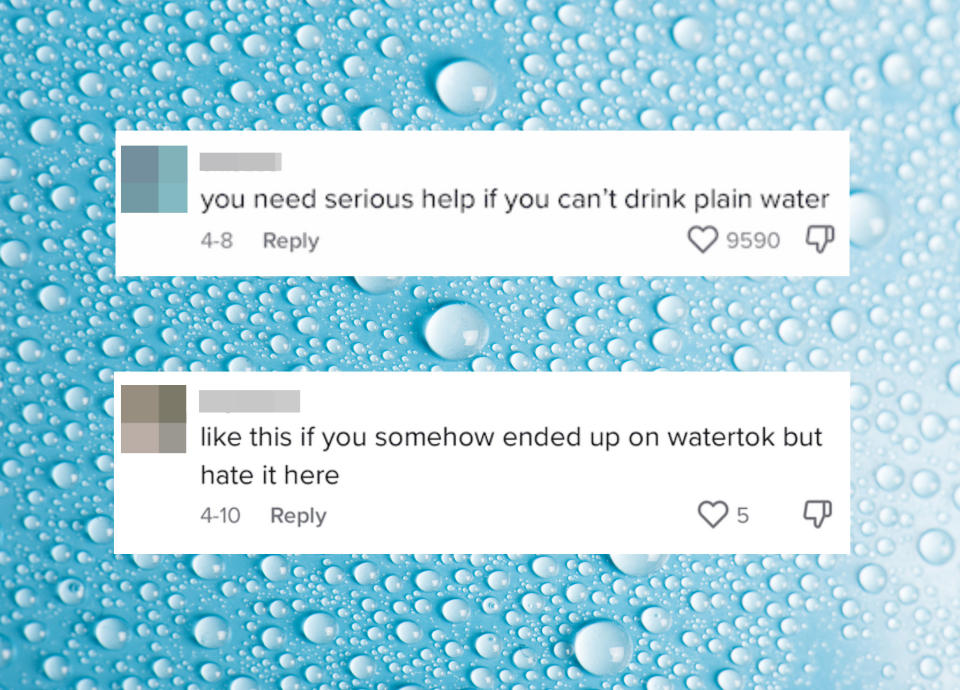
Another area of contention: Regardless of your stance on WaterTok, it's difficult to untangle the trend from the very complicated (and very real) web that is diet culture — Bon Appétit even called WaterTok "diet culture tomfoolery" in a recent piece. Though videos of water recipes from Tonya and other creators aren't usually explicit about being for weight loss, hashtags and packaging can often make intentions feel hazy. Many of Tonya's videos incorporate hashtags like #WeightLoss and #FitnessMotivation, and other creators frequently mention their "weight-loss journeys."
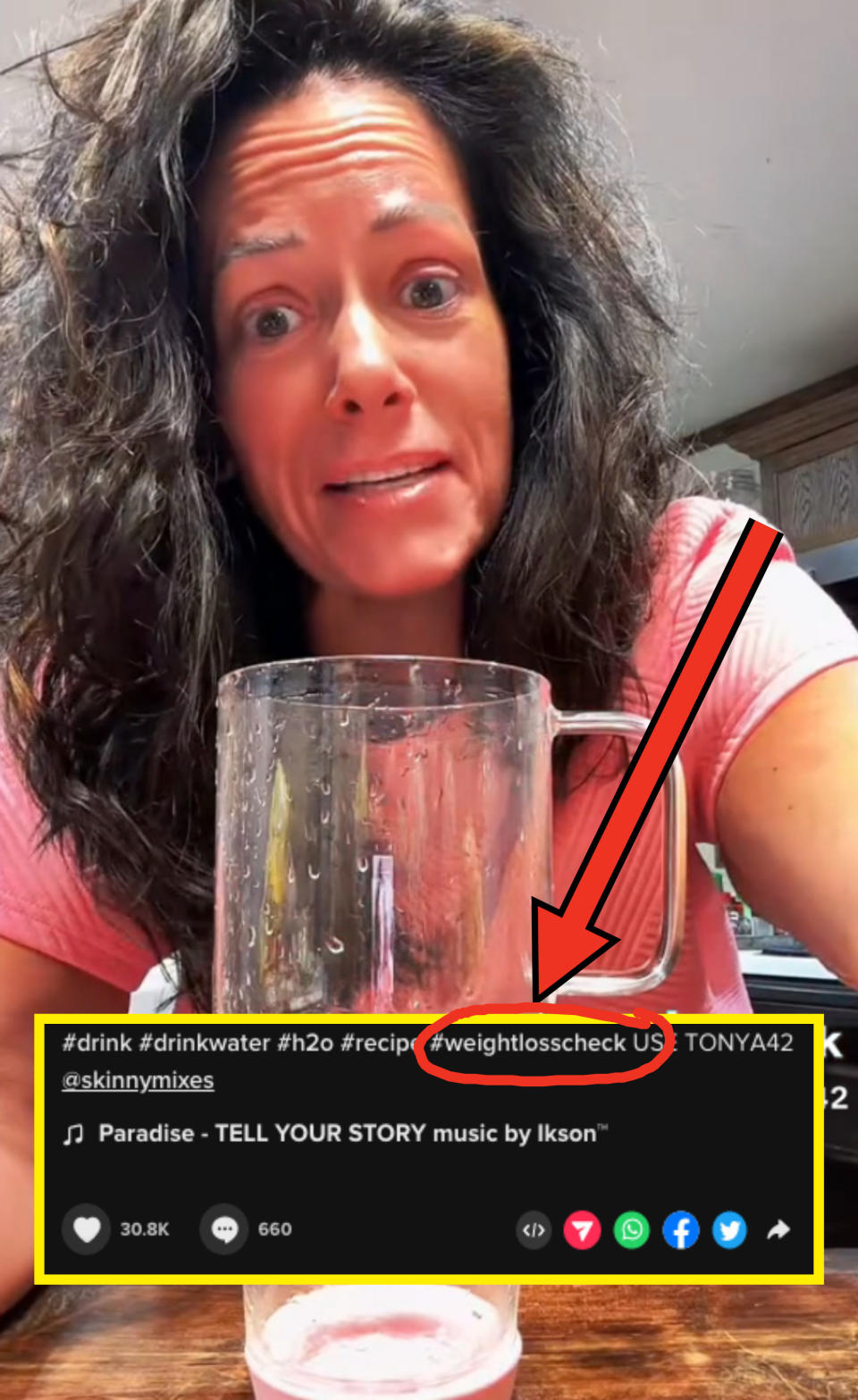
To be clear, no videos that I've seen have explicitly touted these water recipes as methods for weight loss, but it's easy to see how a "way to stay hydrated" for some can become seriously tangled up in conversations about shrinking bodies and dieting for others. Not for nothing, there's also the very obvious nod to diet culture, with so-called Skinny Syrups being the flavoring of choice for most WaterTok creators; Tonya even has her promo code listed in her TikTok bio.
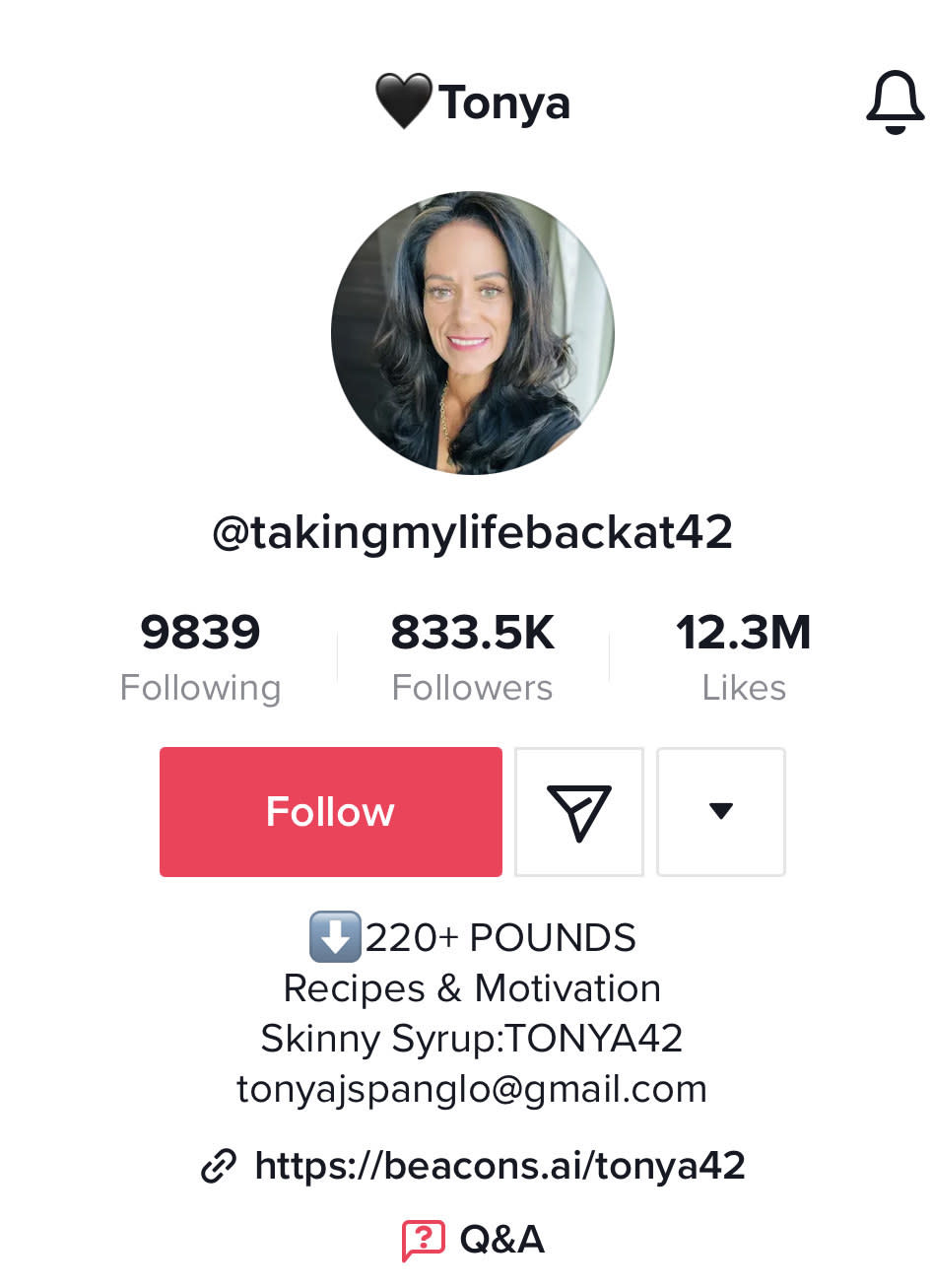
These factors alone make this trend inherently tricky for many folks to engage with, but upon digging deeper, it appears that there's another community that's derived a great deal of relief from WaterTok.
Several TikTokers who've undergone bariatric surgery have posted videos in emphatic support of these water recipes, including Erienne Higgins. According to Erienne and others, flavoring their water not only makes it more enjoyable to drink but can also be one of the few ways they avoid water nausea, which she explains in a viral video directed toward the anti-WaterTokers in her own comments.
@that1sleevedtexasgirl Replying to @nxvrra people need tp stay in their lane... #troll #mindyourowncup #stayinyourlane #bariatriccommunity #worryaboutyourself
♬ original sound - eriennehiggins
"I can't drink plain water [after undergoing bariatric surgery]," she says in the video. "I would've never drank a flavor packet before surgery. I didn't like anything sweet like that; I could not do it. I'm 16 months out from bariatric surgery, and I still can't drink plain water. It sits like a brick in my gut, and it actually physically hurts me." Other commenters who say they have also undergone weight-loss surgery agree with Erienne. One commenter even voices that she thought she was the "only one" who couldn't comfortably drink plain water, adding that her water flavor packets are "lifesavers."
Water nausea, as it turns out, is actually a lesser-understood phenomenon, so I spoke with Dr. Supriya Rao — who is quadruple board-certified in internal medicine, gastroenterology, obesity medicine, and lifestyle medicine — to further explain these experiences.
As Rao puts it, there are several reasons why one could experience nausea after drinking water, and though it's most common in bariatric patients (specifically those with gastric bypass), it could feasibly happen to anyone. One reason could be preexisting dehydration. "Patients may have some type of electrolyte imbalance because, with bypass patients, they're not absorbing all the vitamins that they normally would," she told BuzzFeed.
"Or it could be the way that surgery is done, from a nervous system point of view. You're changing things around in the gut, and it's possible that the nerve endings are sending signals to make you feel nauseated, and that having something sweet would make it more palatable. Sugar, salt, and fat are more palatable ingredients in general."
Recently, these opposing views on the trend found a much larger audience when WaterTok made headlines just about everywhere, but now the controversy is mostly centered on perceived health concerns. In the past few days, articles focusing on the trend's health risks have emerged from outlets like Rolling Stone, Forbes, and CNBC. Some experts reference artificially sweetened drinks as being less hydrating than regular water, and others state that the ingredients present in some of these flavoring agents can be concerning.
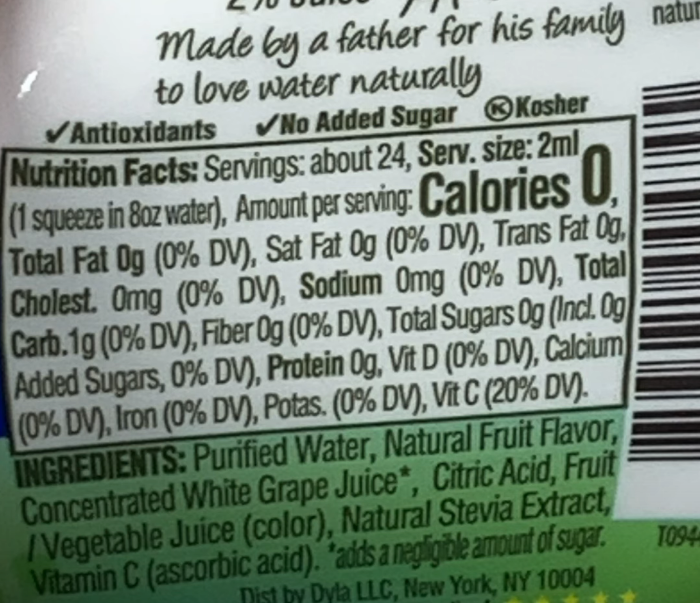
When asked about the trend, Dr. Uma Naidoo, a nutritional psychiatrist, told CNBC that "artificial sweeteners are not good for our body," even adding that many of the artificial sweeteners found in common WaterTok flavorings (for example, sucralose is the artificial sweetener used in Skinny Syrups) are "problematic for gut health."
Though the article referenced above doesn't delve into the specifics, Rao was able to verify exactly why these ingredients could be harmful. "We've come a long way since Equal," she told BuzzFeed, "but there are a bunch of artificial sweeteners that have effects on our gut microbiome that we're just now discovering can be harmful. Our bodies don't break down these artificial sweeteners; they travel through the gut. They exert an effect on the bacteria in our gut, and when that happens, certain species of bacteria tend to persist, and other ones die off in a way that can actually lead to glucose intolerance."
Basically, even though artificial sweeteners aren't sugar at all, regular consumption of these sweeteners still has the potential to cause glucose intolerance and insulin resistance, which are known warning signs of prediabetes.
Amid the discourse on how "healthy" (or unhealthy) WaterTok recipes are, Tonya has remained rather quiet, save for a video she made several weeks ago addressing negativity from commenters. I asked Tonya for her thoughts on the pushback from experts, and she responded by confirming that the medical professionals she works with closely unanimously support her water recipes. "My doctors, nutritionist, and dietitian all agree these waters are still hydrating, and have approved them for my weight-loss journey," she told BuzzFeed. "Sugar-free powders and fun sugar-free syrups do not cancel out the water you are still drinking."
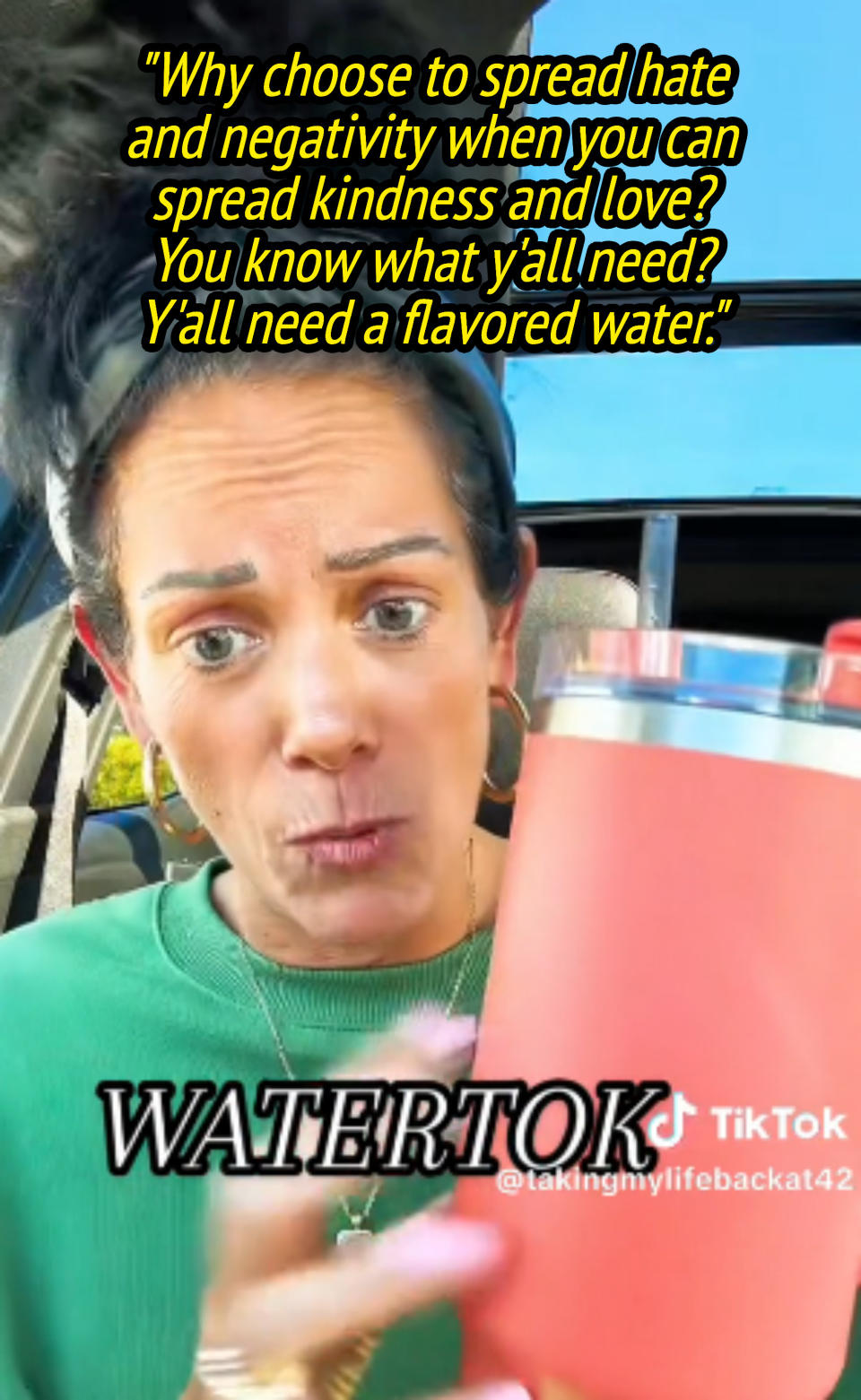
As far as hydration is concerned, Rao agrees with Tonya: "If you're adding a flavor packet to your water, you're still getting all that water. You're getting the added negative effect of whatever you're adding to it, but overall, you're still getting hydrated."
Still, explanations of what these artificial sweeteners have the potential to do to our bodies don't directly address the diet culture discourse swirling around this trend, so I reached out to Sam Previte, a registered dietitian and intuitive-eating counselor. Considering her anti–diet culture approach to eating, I was especially curious to hear her take.
"I think that this is a positive thing," Previte told BuzzFeed. "Anything that brings pleasure and enjoyment to food and beverages is a positive thing, and water is necessary for life. I do this all the time with my clients; if they're like, 'I don't like plain water,' then we do talk about fun ways they can spice it up."
Furthermore, she also firmly believes that people are entitled to their food and drink preferences. "I always say, 'My plate, my business,'" she said. "You could say, 'My cup, my business.' It's OK if people like plain water. You don't have to like these flavored beverages, but can we allow other humans to enjoy their water, their food, their preferences, however they like them? Because that's all that matters."
Previte's and Rao's stances on diet culture are effectively the same. "Diet culture is super damaging and super awful, especially for patients who really are trying to just get healthier," Rao told BuzzFeed. But she has a hard time assigning a pro– or anti–diet culture label on the trend without knowing the true motives of the influencers behind it. "Some of them might be hawking artificial sweetener packets, and some of them may be really earnest people, like a bariatric surgery patient who's just trying to not vomit water."
Intentions aside, she still doesn't recommend turning to artificial sweeteners in the long term. Instead, she recommends flavoring water with citrus or berries or turning to unsweetened coconut water — even if it's admittedly more "boring" than WaterTok's recipes. "One thing I'll have my patients do is chop up some fruit and add it with water into ice cube trays so they can have fruit ice cubes in their beverages," Rao said.
Regardless of the public consensus on WaterTok, the trend shows no signs of slowing down; the 220 million views of the #WaterTok hashtag on TikTok represent a nearly 70% increase over the past two weeks alone. Whether you're for it or against it, water recipes are here to stay — as are the debates surrounding them.
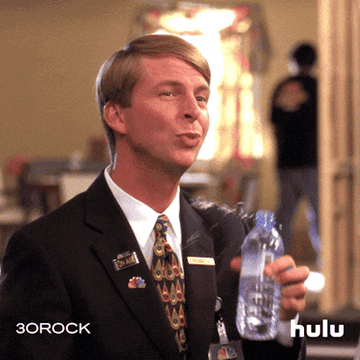
NBCUniversal / Via giphy.com

